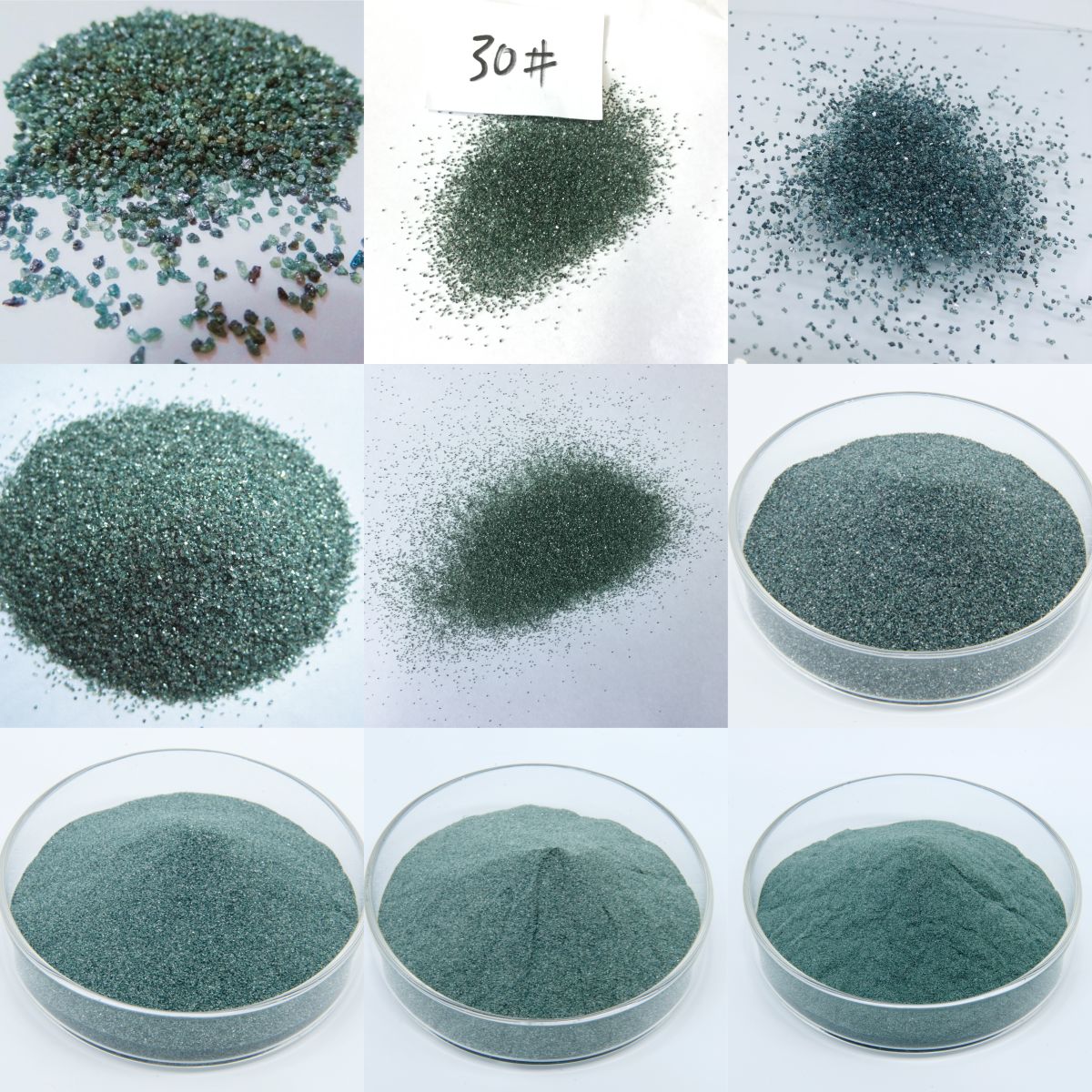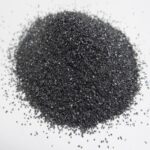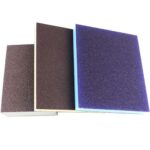Green silicon carbide or black sic powder is more suitable for polishing optical glass?
Green silicon carbide is a more suitable choice when polishing precision optical glass.
Green silicon carbide has several advantages when polishing precision optical glass:
High hardness: The Mohs hardness of green silicon carbide is as high as 9.2 to 9.5, which makes it extremely resistant to pressure and friction, and can more effectively remove materials from the glass surface, while reducing the wear of the abrasive tool and extending its service life.
Wear resistance: Green silicon carbide has excellent wear resistance, and can maintain good cutting efficiency and processing quality during long-term and high-intensity grinding operations, ensuring the accuracy and stability of grinding operations.
Thermal conductivity: Green silicon carbide has good thermal conductivity, which can effectively conduct the heat generated during the grinding process, keep the temperature of the grinding area stable, avoid deformation or thermal stress of the workpiece caused by temperature changes, and thus improve the yield of the product.
Chemical stability: Green silicon carbide has excellent chemical resistance, can resist the erosion of a variety of corrosive media, and ensure the stability and integrity of the material in a complex chemical environment.
Scope of application: Green silicon carbide is suitable for grinding and polishing of optical glass, and can maintain high flatness and low roughness of the optical surface. In contrast, although black silicon carbide also has a certain grinding force, in the polishing of precision optical glass, green silicon carbide is more suitable due to its higher hardness and better physical and chemical properties.
Data for green sic:
| Chemcial data | ||||
| SIC | SiO2 | Fe2O3 | F. Fe | C |
| 99%min | ≤0.2 | ≤0.2 | 0.04% | 0.1% |
| Physical data | ||||
| colour | Mohs hardness | Knoop harnedd | Specific Gravity | Melting Point |
| green | 9 | 2600 | 3.2 g/cm3 | 2600° |
Green sic:

green sic package:





